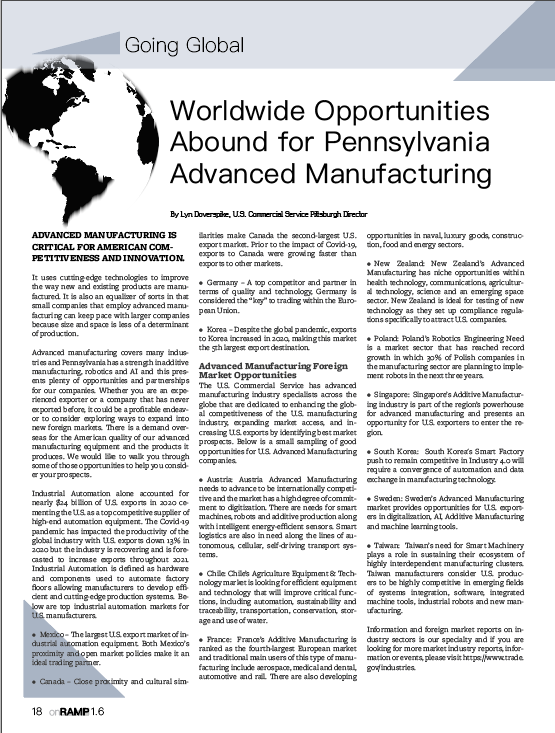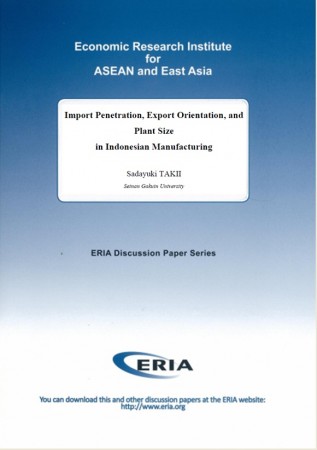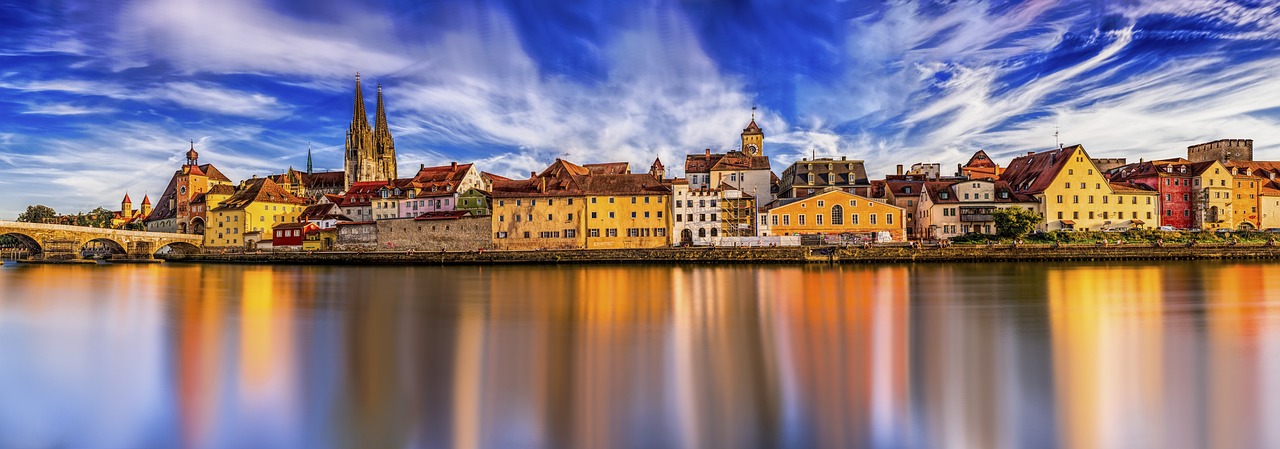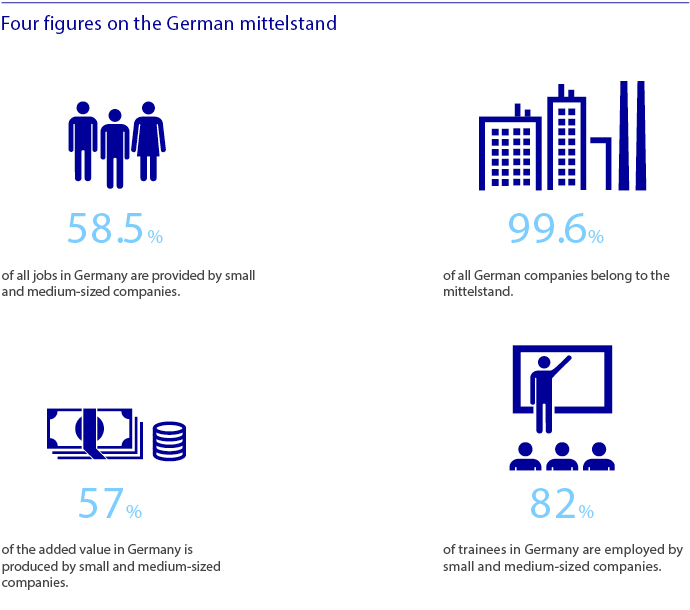the Mittelstand. These small and medium-sized enterprises (SMEs) form the backbone of Germany’s economy, and their impact reaches far beyond national borders. In this article, we explore the Mittelstand, their unique characteristics, and the global influence they wield in various industries.
The Mittelstand, a term often used to describe small and medium-sized enterprises (SMEs) in Germany, occupies a distinctive and indispensable role within the country’s economy. However, their influence extends far beyond national borders, making them a noteworthy phenomenon in the global business landscape. In this article, we delve deeper into the Mittelstand, exploring their unique characteristics and the substantial global influence they wield across various industries.
Characteristics of the Mittelstand:
Family Ownership and Management: A defining feature of many Mittelstand companies is their family ownership and management. These businesses often remain under the stewardship of the same family for generations, fostering a strong sense of tradition, commitment, and long-term vision.
Specialization and Niche Markets: Mittelstand companies excel in specialization, often focusing on niche markets or industries. They carve out a distinct competitive advantage by producing highly specialized products or services, catering to specific customer needs.
Innovation and Quality: Despite their smaller size compared to multinational corporations, Mittelstand enterprises prioritize innovation and product quality. They invest in research and development, ensuring that their offerings meet the highest standards and remain competitive on a global scale.
Apprenticeship Programs: Many Mittelstand companies actively participate in Germany’s renowned apprenticeship programs. These programs not only contribute to a highly skilled workforce but also foster a sense of continuity by passing on valuable knowledge and expertise to the next generation of workers.
Global Outlook: While Mittelstand companies may be rooted in Germany, they maintain a global perspective. Many of them engage in international trade, exporting their products and services to markets worldwide. This global orientation has enabled them to thrive in an increasingly interconnected global economy.
Global Influence of the Mittelstand:
Export Powerhouse: Mittelstand companies are a driving force behind Germany’s export-oriented economy. Their ability to produce high-quality, specialized goods has made them sought-after suppliers on the international stage. They contribute significantly to Germany’s trade surplus and export strength.
Global Supply Chains: Mittelstand enterprises often serve as key components in global supply chains, providing critical components, machinery, and technology to industries across the world. Their reliability and quality make them trusted partners for multinational corporations.
Innovation and Technology Leadership: The Mittelstand is at the forefront of innovation in various sectors, including manufacturing, engineering, and technology. Their cutting-edge products and solutions are instrumental in shaping global industry standards.
Resilience and Adaptability: Mittelstand companies have demonstrated remarkable resilience and adaptability, navigating through economic challenges and global uncertainties. Their ability to pivot and adjust to changing market conditions has contributed to their longevity and success.
Cultural and Social Contributions: Beyond their economic impact, Mittelstand companies play a significant role in preserving cultural and social values in Germany. They often maintain strong ties to local communities and support initiatives related to education, culture, and social welfare.
In conclusion, the Mittelstand exemplifies the dynamic and resilient nature of SMEs in Germany. Their unique characteristics, including specialization, innovation, and global outlook, have propelled them to the forefront of the global business landscape. As key players in various industries, Mittelstand enterprises continue to shape and influence the global economy, emphasizing the enduring strength of small and medium-sized businesses in a rapidly changing world.
Should you desire more in-depth information, it’s available for your perusal on this page: World social science report, 2016: Challenging inequalities …

The term “Mittelstand” encompasses a vast array of small and medium-sized businesses in Germany, ranging from family-owned craft shops to high-tech manufacturing firms. These enterprises share several defining characteristics:
The term “Mittelstand” serves as a broad and inclusive umbrella that shelters a diverse array of small and medium-sized enterprises (SMEs) across Germany. This rich tapestry of businesses, while differing in scope and specialization, unites under several defining characteristics that underscore their resilience, adaptability, and vital role in the German economy:
1. Family Ownership and Management: Many Mittelstand businesses are family-owned and operated. This familial connection often translates into a deep sense of commitment, a long-term perspective, and a personal investment in the success and sustainability of the enterprise. This family ethos permeates the company culture and decision-making processes.
2. Specialization and Niche Expertise: Mittelstand firms are renowned for their specialization in niche markets. Rather than pursuing broad, mass-market strategies, they carve out unique positions by becoming experts in their chosen fields. This specialization often involves producing high-quality, differentiated products or offering specialized services.
3. Flexibility and Agility: The Mittelstand is marked by its nimbleness and adaptability. SMEs in this category have the agility to pivot swiftly in response to market changes, technological advancements, or shifts in consumer preferences. This flexibility allows them to seize opportunities and navigate challenges with relative ease.
4. Commitment to Innovation: Contrary to the perception that innovation is the purview of large corporations, Mittelstand firms are vibrant hubs of innovation. They invest in research and development to enhance their products and processes continually. This commitment to innovation often results in groundbreaking advancements in technology, engineering, and industry-specific practices.
5. Skilled Workforce and Apprenticeships: Mittelstand businesses place a premium on cultivating skilled workforces. Many of them engage in apprenticeship programs that provide hands-on training to young professionals, ensuring a pipeline of qualified talent. The apprenticeship system is integral to the success of these firms and contributes to Germany’s reputation for high-quality craftsmanship and technical expertise.
6. Global Orientation: While Mittelstand companies may be rooted in Germany, they have a global outlook. A significant portion of these SMEs engage in international trade, exporting their products and services to markets worldwide. This global orientation has helped them weather economic fluctuations and seize opportunities in diverse regions.
7. Long-Term Vision: Mittelstand enterprises are known for their focus on long-term sustainability rather than short-term gains. They tend to make strategic decisions with an eye on the future, which fosters economic stability and resilience even in the face of economic uncertainties.
8. Ethical Business Practices: Ethics and corporate responsibility are integral to the Mittelstand’s ethos. These firms often uphold ethical business practices, emphasizing fairness, transparency, and social responsibility. Their commitment to responsible business conduct aligns with Germany’s broader emphasis on sustainability and corporate citizenship.
9. Collaboration with Research and Academia: Many Mittelstand firms engage in collaborative partnerships with research institutions and academia. These collaborations facilitate innovation and knowledge exchange, allowing these SMEs to remain at the forefront of technological advancements and industry best practices.
10. Regional Anchors: Mittelstand businesses are often deeply integrated into their local communities and regions. They contribute to regional economic development, job creation, and community engagement. Their success has a ripple effect on the prosperity of the areas in which they operate.
In essence, the Mittelstand is a testament to the diverse and vibrant landscape of small and medium-sized enterprises in Germany. These businesses, while diverse in size and specialization, are bound together by their shared commitment to excellence, innovation, ethical conduct, and their role as engines of economic growth and stability in Germany and beyond.
Should you desire more in-depth information, it’s available for your perusal on this page: German Mittelstand upbeat but says refugees won’t solve problems …

Mittelstand companies are typically family-owned or privately held, emphasizing long-term stability and continuity over short-term profits.
Mittelstand companies, often characterized by their family-owned or privately held nature, embody a unique approach to business that places paramount importance on long-term stability and continuity, contrasting with the prevailing trend of pursuing short-term profits. This distinctive philosophy has far-reaching implications that extend beyond their ownership structure.
Sustainable Growth: Mittelstand companies prioritize sustainable growth strategies. They are not solely fixated on rapid expansion or quarterly profits but rather on building a solid foundation that can withstand economic fluctuations and changes in market conditions. This patient approach to growth ensures they can thrive even during challenging times.
Investment in Human Capital: A key extension of this philosophy is their investment in human capital. Mittelstand companies often cultivate a loyal and skilled workforce. Employees are viewed as long-term assets rather than just tools for immediate profit. This approach fosters a sense of loyalty and commitment among employees, which, in turn, enhances the company’s stability and performance.
Innovation with Prudence: While they may not always chase the latest trends, Mittelstand companies are known for their commitment to innovation with prudence. They innovate to improve product quality, efficiency, and long-term sustainability rather than merely seeking short-lived competitive advantages. This mindset ensures that they stay relevant and competitive over the years.
Strong Local Ties: Mittelstand companies often have deep-rooted connections within their local communities. Their commitment to long-term stability extends to their relationships with customers, suppliers, and local stakeholders. These connections provide a buffer during economic downturns and foster trust among their partners.
Risk Management: Their emphasis on stability also translates into a more cautious approach to risk management. Mittelstand companies tend to have lower debt levels and maintain strong cash reserves, which helps them weather economic storms. They are less likely to engage in high-risk financial practices that could jeopardize their long-term viability.
Legacy and Succession Planning: The long-term orientation of Mittelstand companies is reflected in their meticulous succession planning. Family-owned businesses, in particular, place great importance on passing the company down through generations. This commitment to continuity ensures that the values and strategies that have led to their success are preserved.
Customer-Centric Focus: Instead of aggressively chasing short-term profits, Mittelstand companies often maintain a strong customer-centric focus. They prioritize delivering high-quality products and services, building lasting customer relationships, and earning a reputation for reliability and trustworthiness.
Social Responsibility: Many Mittelstand companies also have a strong sense of social responsibility. They contribute to the well-being of their communities by providing stable employment, supporting local initiatives, and often engaging in sustainable business practices that benefit society as a whole.
In conclusion, Mittelstand companies’ commitment to long-term stability and continuity is a multifaceted philosophy that permeates every aspect of their operations. This approach not only contributes to their own resilience but also has a broader positive impact on their employees, communities, and the business landscape as a whole. It serves as a compelling example of how a business can thrive while prioritizing values and longevity over immediate financial gains.
To expand your knowledge on this subject, make sure to read on at this location: Innovation with Limited Resources: Management Lessons from the …

Many Mittelstand businesses focus on niche markets and specialized products or services, allowing them to excel in their chosen areas of expertise.
The Mittelstand’s knack for focusing on niche markets and specialized offerings is a cornerstone of their enduring success. Let’s delve deeper into how this strategy allows them to excel in their chosen areas of expertise:
1. Deep Industry Knowledge: Mittelstand firms often operate in industries they know intimately. This profound understanding enables them to identify underserved niches, anticipate industry trends, and cater to specific customer needs with unmatched precision. This specialization results in products and services that are finely tuned to meet market demands.
2. Quality over Quantity: Rather than pursuing mass production, Mittelstand companies prioritize quality and precision. Their dedication to producing high-quality, reliable goods fosters customer loyalty and enhances their reputation. This focus on quality is often a key factor in their ability to penetrate global markets, where discerning customers seek excellence.
3. Innovation and Customization: Niche-focused Mittelstand businesses are well-positioned to innovate and customize their offerings. Their size allows for agility in responding to market changes and customer requests. As a result, they can create tailor-made solutions, adapt quickly to emerging trends, and stay ahead of competitors.
4. Niche Monopolies: In some cases, Mittelstand firms achieve a virtual monopoly within their niche markets. By becoming the go-to source for specialized products or services, they establish themselves as indispensable partners for their customers. This monopoly status often leads to enduring profitability and growth.
5. Lower Competition: Niche markets may have fewer competitors, reducing the intensity of price wars and competition. This environment allows Mittelstand companies to maintain healthy profit margins while providing exceptional value to customers. It also offers a degree of insulation from global economic fluctuations.
6. Global Appeal: Specialized products and services from Mittelstand firms often possess unique qualities that appeal to international markets. Whether it’s precision engineering, craftsmanship, or innovative solutions, their offerings can find enthusiastic customers worldwide who are willing to pay a premium for excellence.
7. Building Strong Networks: Niche-focused Mittelstand companies often foster strong networks of customers, suppliers, and industry partners. These relationships are built on trust and mutual benefit and play a crucial role in their continued success. Collaborative efforts can lead to joint ventures and expansion opportunities.
8. Diversification Within Niche: Some Mittelstand firms diversify their product or service offerings within their chosen niche. This strategy allows them to capture a broader spectrum of customers and adapt to changing market dynamics while remaining true to their core expertise.
In summary, Mittelstand businesses’ commitment to niche markets and specialized offerings is a strategic choice that fuels their ability to excel. Their in-depth industry knowledge, unwavering focus on quality, and capacity for innovation position them as global leaders in their respective niches. By consistently delivering exceptional value to customers, they not only thrive in their chosen areas of expertise but also leave a lasting imprint on industries and markets worldwide.
For a comprehensive look at this subject, we invite you to read more on this dedicated page: The German Mittelstand as a model for success – BMWK

Despite their size, Mittelstand firms often lead in innovation, leveraging their agility and deep industry knowledge to develop cutting-edge solutions.
Mittelstand firms, despite their comparatively modest size in terms of workforce and revenue, consistently prove themselves as leaders in innovation, a testament to their unique blend of agility, specialized expertise, and unwavering commitment to excellence.
Agility as a Competitive Edge: Mittelstand firms are known for their ability to pivot swiftly in response to changing market conditions and emerging opportunities. Unlike larger corporations, they often have fewer bureaucratic layers, allowing for quicker decision-making and implementation of innovative ideas. This agility positions them to adapt rapidly to evolving customer preferences and industry trends.
Deep Industry Knowledge: Mittelstand firms typically specialize in niche industries, cultivating a deep reservoir of industry-specific knowledge. This expertise is invaluable when it comes to identifying gaps in the market, uncovering unmet needs, and developing innovative solutions that cater to the unique demands of their sectors.
Innovation Beyond Technology: While technology-driven innovation is prevalent, Mittelstand firms excel in innovation across various domains. They frequently innovate in areas such as process optimization, supply chain management, sustainability, and customer service. Their innovations often focus on enhancing operational efficiency and customer satisfaction.
Risk-Taking and Entrepreneurial Spirit: Mittelstand entrepreneurs are renowned for their willingness to take calculated risks. This entrepreneurial spirit encourages experimentation and the pursuit of breakthrough ideas. They understand that innovation involves a degree of risk, but it is this very willingness to embrace risk that can lead to groundbreaking innovations.
Long-Term Vision: Mittelstand firms often prioritize long-term sustainability over short-term gains. This perspective allows them to invest in research and development, fostering an environment where innovation is not viewed solely as a cost but as a strategic investment in the future.
Collaborative Ecosystems: Mittelstand firms frequently engage in collaborative ecosystems, partnering with research institutions, universities, and startups. These collaborations provide access to cutting-edge research, emerging technologies, and fresh talent, fostering an environment conducive to innovation.
Global Competitiveness: Mittelstand firms are not limited by their size when it comes to competing on a global scale. Their ability to innovate positions them as formidable competitors in international markets. They leverage innovation to create distinctive products and services that resonate with customers worldwide.
Sustainability and Resilience: Innovation within Mittelstand firms often extends to sustainability practices. They recognize the importance of responsible business operations and eco-friendly products, aligning innovation efforts with a commitment to long-term environmental and economic sustainability.
Challenges and Adaptation: While Mittelstand firms excel in innovation, they also face challenges such as access to capital and global competition. However, their resilience and capacity to adapt enable them to overcome these obstacles and continue to thrive in the ever-evolving business landscape.
In conclusion, Mittelstand firms epitomize the idea that size does not determine innovation capability. Their agility, deep industry knowledge, risk-taking spirit, and commitment to long-term sustainability position them as innovation powerhouses. Whether in niche manufacturing, specialized services, or technology-driven sectors, Mittelstand firms continue to lead in innovation, showcasing that innovation is not solely the domain of large corporations but can flourish in smaller, specialized enterprises with a clear vision and a passion for excellence.
For additional details, consider exploring the related content available here How the German Mittelstand is mastering the COVID-19 crisis …

A significant portion of Mittelstand companies engage in international trade, exporting their products and services to global markets.
A significant portion of Mittelstand companies, often characterized by their medium-sized and family-owned nature, have embraced international trade as a cornerstone of their success. These enterprises, deeply rooted in Germany’s industrial landscape, have demonstrated a remarkable ability to compete and thrive on a global scale.
One key factor driving the international success of Mittelstand companies is their unwavering commitment to innovation and quality. Many of these firms specialize in niche markets and have developed highly specialized products and services that are in demand worldwide. Their dedication to excellence and continuous improvement has allowed them to not only meet but often exceed international standards, earning them a reputation for reliability and precision.
Furthermore, Mittelstand companies have a knack for fostering strong, long-term relationships with both customers and suppliers across the globe. Their emphasis on reliability, trustworthiness, and personalized service has forged enduring partnerships that transcend borders. These relationships, built on mutual respect and shared values, provide a solid foundation for sustained success in international markets.
In addition to their product and service excellence, Mittelstand companies are known for their adaptability and agility. They have demonstrated a remarkable ability to navigate the complexities of international business, from dealing with diverse regulatory environments to responding swiftly to changing market conditions. This flexibility allows them to seize new opportunities and weather economic uncertainties, further enhancing their competitiveness on the global stage.
Moreover, Mittelstand companies are often deeply committed to sustainability and responsible business practices. Their focus on environmental and social responsibility resonates with international consumers and partners who value ethical and sustainable business operations. This commitment not only aligns with global trends but also enhances their brand reputation and market appeal.
In conclusion, the engagement of Mittelstand companies in international trade is a testament to their resilience, innovation, and commitment to quality. Their ability to succeed and excel in global markets underscores the enduring strength of Germany’s industrial landscape and the significant contributions of these enterprises to the country’s economic prowess on the world stage.
Additionally, you can find further information on this topic by visiting this page: Innovation with Limited Resources: Management Lessons from the …

While Mittelstand companies may be small compared to multinational corporations, their global reach is impressive:
While Mittelstand companies may be small when compared to the giant multinational corporations that dominate the global business landscape, their influence and global reach are nothing short of impressive. These small and medium-sized enterprises (SMEs) form the backbone of many economies, particularly in Germany, and their impact extends far beyond their size:
Resilience and Sustainability: Mittelstand companies are often characterized by their stability and resilience. They tend to weather economic downturns better than larger corporations due to their flexibility and adaptability. This resilience contributes to the long-term sustainability of the businesses and the communities they serve.
Innovation and Niche Expertise: Mittelstand companies excel in niche markets and specialized industries. Their ability to focus on specific products or services allows them to become experts in their field. This expertise often translates into innovative solutions and high-quality products that find demand not only domestically but also internationally.
Export-Oriented: Many Mittelstand companies are export-oriented, making them key players in global trade. Their commitment to producing high-quality goods and services, combined with a strong work ethic, has earned them a reputation for reliability in international markets. They often form the backbone of a nation’s export sector.
Job Creation: Collectively, Mittelstand companies are significant employers. Their ability to generate jobs and support local communities is a testament to their economic impact. This is particularly important in regions where larger corporations may have downsized or moved operations elsewhere.
Global Supply Chains: Mittelstand companies are integral components of global supply chains. They provide specialized components, materials, and services to larger corporations that rely on their expertise. This symbiotic relationship helps drive global industries forward.
Influence on Local Economies: Mittelstand companies often have deep ties to their local communities. Their success translates into increased economic activity in these regions, benefiting not only the businesses themselves but also the overall prosperity of the area.
Adaptability to Market Changes: Despite their size, Mittelstand companies are known for their agility in adapting to market changes. They can pivot quickly to seize new opportunities or address challenges, enabling them to remain competitive in an ever-evolving global business landscape.
Cultural Heritage: Many Mittelstand companies are family-owned, with a rich cultural heritage that often spans generations. This commitment to tradition and values can be a unique selling point in global markets, emphasizing authenticity and quality.
In conclusion, while Mittelstand companies may not have the vast resources or global recognition of multinational corporations, their global reach is substantial and their impact profound. These SMEs exemplify the power of focused expertise, adaptability, and resilience in the world of business. As they continue to expand their presence in international markets, they play a crucial role in driving economic growth and innovation on a global scale.
Explore this link for a more extensive examination of the topic: The German Mittelstand as a model for success – BMWK

Two examples of Mittelstand companies that have achieved global recognition are:
Two shining examples of Mittelstand companies that have not only achieved global recognition but have also redefined industry standards through their excellence and innovation are:
**1. Miele – This family-owned German company, founded in 1899, has become synonymous with high-quality household appliances. Miele’s commitment to precision engineering, durability, and innovation has earned it a revered status worldwide. From its iconic vacuum cleaners to state-of-the-art washing machines and kitchen appliances, Miele products are celebrated for their craftsmanship and performance. The company’s global reach extends to over 100 countries, with a reputation for delivering products that embody the highest standards of reliability and functionality.
**2. Trumpf – Trumpf, a leading German technology company founded in 1923, has emerged as a global leader in the manufacturing of machine tools and industrial lasers. Its cutting-edge innovations have revolutionized industries such as sheet metal processing, where Trumpf’s laser cutting machines have set new benchmarks for precision and efficiency. The company’s international presence spans continents, with a commitment to shaping the future of manufacturing through digitalization and smart technologies.
These Mittelstand companies exemplify not only the tradition of excellence and craftsmanship but also the capacity for innovation and adaptation that defines this unique segment of German industry. Their global recognition is a testament to the enduring impact of Mittelstand enterprises in shaping the global landscape.
To expand your knowledge on this subject, make sure to read on at this location: The German Mittelstand: antithesis to Silicon Valley entrepreneurship?

A family-owned appliance manufacturer, Miele is a global leader in high-quality household appliances and commercial equipment. Known for its innovation and commitment to sustainability, Miele products are sold in over 100 countries.
Miele, a distinguished family-owned appliance manufacturer, stands as a paragon of excellence in the realm of household appliances and commercial equipment on a global scale. The story of Miele is not just about the production of appliances but a legacy rooted in innovation, quality, and unwavering commitment to sustainability, which has transcended international borders, captivating households and businesses in over 100 countries.
A Tradition of Excellence: Miele’s journey began with a vision of creating appliances that would not only make everyday tasks more convenient but also elevate the quality of life. This commitment to excellence has been passed down through generations, forming the cornerstone of the company’s values. Miele’s name has become synonymous with craftsmanship and meticulous attention to detail.
Innovation at the Heart: Miele’s innovative spirit has been a driving force behind its success. The company has consistently pushed the boundaries of technology and design, introducing groundbreaking features that enhance the functionality and efficiency of its products. Whether it’s pioneering advancements in laundry care, cooking, or cleaning solutions, Miele has continually set industry standards.
Sustainability as a Guiding Principle: Miele’s dedication to sustainability extends beyond profit margins. It’s deeply rooted in the belief that responsible business practices are essential for the well-being of the planet and future generations. From eco-friendly manufacturing processes to energy-efficient appliances and a commitment to reducing environmental impact, Miele exemplifies a responsible approach to business.
Global Reach and Local Relevance: With a presence in over 100 countries, Miele’s influence extends far and wide. Its appliances grace the homes of diverse cultures and climates, adapting to the unique needs of households around the world. Miele’s commitment to providing tailored solutions that cater to local preferences has contributed to its global success.
Trust and Reliability: Miele’s reputation for trustworthiness and reliability is a testament to its enduring commitment to quality. Customers trust Miele appliances to deliver exceptional performance day in and day out, making them an integral part of their daily lives. This trust has fostered enduring customer relationships that span generations.
Commercial Excellence: Beyond households, Miele’s reach extends to commercial and professional settings. Its commercial equipment is trusted by businesses and industries worldwide, from hospitality and healthcare to foodservice and beyond. Miele’s commercial solutions embody the same principles of innovation, quality, and sustainability that define its household products.
Community Engagement and Social Responsibility: Miele’s influence goes beyond its product offerings. The company actively engages with the communities it serves, supporting charitable initiatives, education, and social responsibility projects. This commitment to making a positive impact on society reflects Miele’s ethos of giving back.
In conclusion, Miele’s journey from a family-owned appliance manufacturer to a global leader is a testament to the enduring values of innovation, quality, and sustainability. Its reach extends to households and businesses across the globe, making Miele a trusted partner in everyday life. As Miele continues to innovate and uphold its commitment to excellence, its legacy as a beacon of quality and responsibility in the appliance industry remains as vibrant as ever.
Should you desire more in-depth information, it’s available for your perusal on this page: International Benchmarking of Countries’ Policies and Programs …

A technology company specializing in machine tools and lasers, Trumpf has revolutionized industrial manufacturing. Its high-tech solutions are used in various industries worldwide, from automotive to aerospace.
Trumpf, a pioneering technology company with a focus on machine tools and lasers, has left an indelible mark on the landscape of industrial manufacturing. Its transformative innovations have not only reshaped the way industries operate but have also transcended borders, finding applications in diverse sectors across the globe.
Cutting-Edge Machine Tools: At the core of Trumpf’s impact lies its cutting-edge machine tools. These precision instruments have redefined manufacturing processes, enabling unparalleled accuracy and efficiency. Whether it’s the creation of intricate automotive components or the fabrication of aerospace structures, Trumpf’s machine tools have become indispensable.
Laser Technology Revolution: Trumpf’s expertise in laser technology has been a game-changer. Lasers are now used for a wide range of applications, from precise cutting and welding in the automotive industry to advanced medical devices and electronics manufacturing. The versatility and precision of Trumpf’s laser solutions have propelled progress in various fields.
Global Reach: Trumpf’s innovations have transcended borders and found applications in industries across the world. Automotive manufacturers in Germany rely on Trumpf’s technology, as do aerospace companies in the United States, medical device manufacturers in Asia, and countless others. Trumpf’s global footprint is a testament to the universal appeal and effectiveness of its solutions.
Efficiency and Sustainability: Trumpf’s contributions extend beyond efficiency to sustainability. By optimizing manufacturing processes, reducing waste, and enhancing precision, Trumpf technology aligns with the growing emphasis on sustainable practices. Industries worldwide are benefiting from both economic and environmental advantages.
Customization and Innovation: Trumpf’s commitment to customization and innovation is evident in its ongoing research and development efforts. Tailored solutions for diverse industries continue to emerge, pushing the boundaries of what’s possible in manufacturing. This dedication to innovation keeps Trumpf at the forefront of technological advancement.
Collaborative Partnerships: Trumpf’s impact is not limited to its own operations; it extends to collaborative partnerships with other industry leaders. These alliances drive progress, foster innovation, and create synergies that benefit a wide range of industries.
In conclusion, Trumpf’s legacy in industrial manufacturing is one of transformation, innovation, and global influence. Through its cutting-edge machine tools and laser technology, Trumpf has revolutionized manufacturing processes across industries and continents. Its solutions have become integral to the fabric of modern industrial production, underscoring the power of technology to shape the world of manufacturing. As industries continue to evolve, Trumpf’s commitment to excellence and innovation ensures that its impact will endure, driving progress and efficiency for generations to come.
To delve further into this matter, we encourage you to check out the additional resources provided here: Industry 4.0: Upgrading of Germany’s industrial capabilities on the …

Despite their global success, Mittelstand companies face challenges, including digitalization, talent acquisition, and global competition. However, their adaptability and resilience position them well to embrace opportunities in emerging markets and industries.
Mittelstand companies, renowned for their global achievements, indeed confront a set of formidable challenges in the evolving business landscape. The rapid pace of digitalization, for instance, has ushered in profound changes in the way business is conducted, posing both opportunities and threats. Mittelstand firms, known for their traditional values and practices, must navigate the digital transformation to remain competitive and relevant.
One of the primary challenges lies in the realm of talent acquisition. As Mittelstand companies expand their operations and reach, they require a skilled and adaptable workforce capable of harnessing the potential of emerging technologies. Attracting and retaining top talent in a fiercely competitive labor market can be daunting, but it is essential for fueling innovation and driving growth.
Moreover, the global marketplace is increasingly competitive, with companies from various corners of the world vying for market share and customer loyalty. Mittelstand firms, despite their solid reputation and expertise, must continuously innovate and adapt their strategies to stay ahead in this global race. Competition from emerging economies, where production costs may be lower, requires Mittelstand companies to leverage their unique strengths and differentiate themselves in the international arena.
However, it is crucial to recognize that Mittelstand companies possess innate qualities that position them favorably in addressing these challenges. Their adaptability and resilience, deeply ingrained in their corporate culture, enable them to embrace change and uncertainty with confidence. These qualities, nurtured over generations, are invaluable assets in an era of rapid technological advancement and shifting market dynamics.
Furthermore, Mittelstand companies can leverage their expertise and capabilities to seize opportunities in emerging markets and industries. Their agility and customer-centric approach allow them to identify niches and untapped potential in diverse markets. By diversifying their portfolios and expanding into sectors aligned with their core competencies, Mittelstand firms can continue to thrive and grow.
In conclusion, while Mittelstand companies face significant challenges in the modern business landscape, their rich heritage of adaptability and resilience positions them well to overcome these hurdles. By embracing digitalization, attracting top talent, and competing globally, they can not only weather the storms of change but also capitalize on emerging opportunities. Mittelstand firms remain a symbol of German entrepreneurship and innovation, poised to play a pivotal role in shaping the future of business and industry.
To delve further into this matter, we encourage you to check out the additional resources provided here: Innovation with Limited Resources: Management Lessons from the …

Conclusion
Germany’s Mittelstand exemplifies the impact that small and medium-sized enterprises can have on the global stage. These companies, with their commitment to innovation, specialization, and long-term sustainability, contribute not only to Germany’s economic strength but also to the world’s technological advancements and economic growth. The Mittelstand stands as a testament to the enduring influence of SMEs in shaping the global business landscape.
Germany’s Mittelstand, a collection of small and medium-sized enterprises (SMEs), serves as an inspiring model for the remarkable influence that such businesses can exert on the global stage. The success and resilience of the Mittelstand offer valuable lessons for economies worldwide, underscoring the pivotal role played by SMEs in driving innovation, specialization, and long-term sustainability.
One of the defining characteristics of the Mittelstand is its unwavering commitment to innovation. These companies are often at the forefront of technological advancements, continuously pushing the boundaries of what is possible. Whether it’s through groundbreaking research and development efforts, the adoption of cutting-edge technologies, or the cultivation of a culture that encourages creative thinking, the Mittelstand consistently contributes to the global pool of knowledge and innovation. This commitment not only strengthens their competitive advantage but also fuels broader technological progress.
Specialization is another hallmark of the Mittelstand’s success. Rather than attempting to compete in every market, these SMEs carve out niches where they can excel. By focusing on areas where they have expertise, they are able to provide highly specialized products and services that meet specific customer needs. This strategic approach not only enhances their competitiveness but also fosters a reputation for quality and reliability. As a result, the Mittelstand plays a pivotal role in shaping industry standards and best practices, setting benchmarks for excellence that inspire others.
Perhaps one of the most impressive aspects of the Mittelstand is its commitment to long-term sustainability. Unlike some businesses that prioritize short-term gains, these SMEs take a more holistic view of their operations, considering the impact on their employees, communities, and the environment. They prioritize responsible business practices, ethical conduct, and corporate social responsibility. This commitment not only enhances their reputation but also ensures their longevity in an ever-changing business landscape. The Mittelstand serves as a reminder that business success can go hand in hand with responsible and sustainable practices.
The global impact of the Mittelstand is not confined to Germany’s borders. These SMEs are major contributors to the world’s economic growth. They export their specialized products and services to markets around the globe, boosting international trade and fostering economic development. The Mittelstand’s reputation for quality and innovation opens doors to international collaborations and partnerships, further expanding their influence.
In conclusion, the Mittelstand’s enduring success and global impact are a testament to the pivotal role that small and medium-sized enterprises can play in shaping the global business landscape. Their commitment to innovation, specialization, and long-term sustainability not only contributes to Germany’s economic strength but also drives technological advancements and economic growth worldwide. The Mittelstand serves as an inspiring example of how SMEs can thrive and make a lasting difference on the global stage.
Should you desire more in-depth information, it’s available for your perusal on this page: 2022 Investment Climate Statements: Germany
More links
To expand your knowledge on this subject, make sure to read on at this location: How the German Mittelstand is mastering the COVID-19 crisis …
